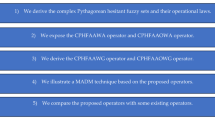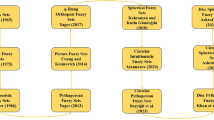Abstract.
This paper studies by means of reciprocal fuzzy binary relations the aggregation of preferences when individuals show their preferences gradually. We have characterized neutral aggregation rules through functions from powers of the unit interval in the unit interval. Furthermore, we have determined the neutral aggregation rules that are decomposable and anonymous. In this class of rules, the collective intensity of preference is the arithmetic mean of the values assigned by a function to the individual intensities of preference. We have also considered the neutral aggregation rules based on quasiarithmetic means. We have established that this class of rules generalizes the simple majority, when individuals have ordinary preferences and collective preferences are reciprocal.
Similar content being viewed by others
Author information
Authors and Affiliations
Additional information
Received: 23 April 1999/Accepted: 25 September 1999
Rights and permissions
About this article
Cite this article
García-Lapresta, J., Llamazares, B. Aggregation of fuzzy preferences: Some rules of the mean. Soc Choice Welfare 17, 673–690 (2000). https://doi.org/10.1007/s003550000048
Issue Date:
DOI: https://doi.org/10.1007/s003550000048




